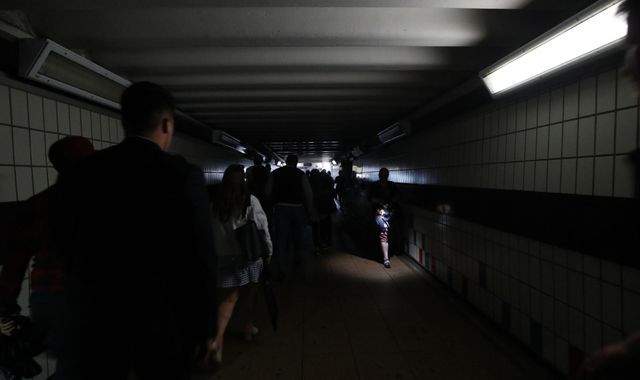National Grid blames lightning strike as it faces Ofgem power cut investigation
Written by News on 21/08/2019
National Grid is facing an investigation by Ofgem over a major power cut earlier this month – as it blamed a lightning strike for the outage.


The regulator – which has the power to fine firms up to 10% of UK turnover – said it was looking into whether the Grid and other electricity companies breached their licence conditions.
Ofgem said it would focus on whether National Grid complied with requirements to hold sufficient backup power as well as how separate generation and distribution companies met their obligations.
It announced the investigation at the same time as it published National Grid’s interim report into the power failure on 9 August, which left more than a million homes without power and caused major rail disruption.
The report blamed an “extremely rare and unexpected” outage at two power stations caused by one lightning strike at 4.52pm that day.
That resulted in a combined power loss to the network which was greater than the backup capacity held in case of emergency.
The report said the system automatically turned off 5% of Britain’s electricity demand to protect the other 95% – a situation which it said had not happened in over a decade.
Ofgem’s investigation will include questions over whether the companies involved made the right decisions about the number of customers who were cut off and if they were the right ones.
National Grid also admitted that the government, the regulator and the media were not made aware of what had happened as quickly as they should have been “impacted by the availability of key personnel given it was 5pm on a Friday evening”.
The business department was not updated until 5.40pm and Ofgem at 5.50pm, nearly an hour after the initial event.
The outage left 1.1 million customers without power for between 15 and 50 minutes as well as affecting trains in the South East.
Problems on the railways were mainly blamed on one particular type of train, of which there were around 60 in use, reacting unexpectedly to the outage, and half of them failing to restart – requiring an engineer to attend to do so.
Other “critical facilities” hit by the power cut included Ipswich hospital and Newcastle airport.
National Grid must submit its final detailed technical report to Ofgem by 6 September.
Jonathan Brearley, Ofgem’s executive director of systems and networks, said: “The power cuts of Friday 9 August caused interruptions to consumers’ energy and significant disruption to commuters.
“It’s important that the industry takes all possible steps to prevent this happening again.
“Having now received National Grid ESO’s [Electricity System Operator] interim report, we believe there are still areas where we need to use our statutory powers to investigate these outages.
“This will ensure the industry learns the relevant lessons and to clearly establish whether any firm breached their obligations to deliver secure power supplies to consumers.”
The power cut came after a lightning strike just before 5pm, resulting in disruption for many commuters travelling home from work or going away for the weekend.
It knocked out Hornsea off-shore windfarm, off the Yorkshire coast – owned by Danish company Orsted – as well as Little Barford gas power station in Bedfordshire – owned by the Germany’s RWE – resulting in the loss of 1,378MW.
That was more than the 1,000MW being kept by National Grid at that time – a level designed to cover the loss of the single biggest power generator to the grid.
Its report said that after the lightning strike at 4.52pm, National Grid restored the system to a “normal stable state” by 5.06pm and distribution network operators returned supply to all customers by 5.37pm.
However some major electricity users including rail services were affected for a number of hours “by the action of their own systems”.
(c) Sky News 2019: National Grid blames lightning strike as it faces Ofgem power cut investigation







